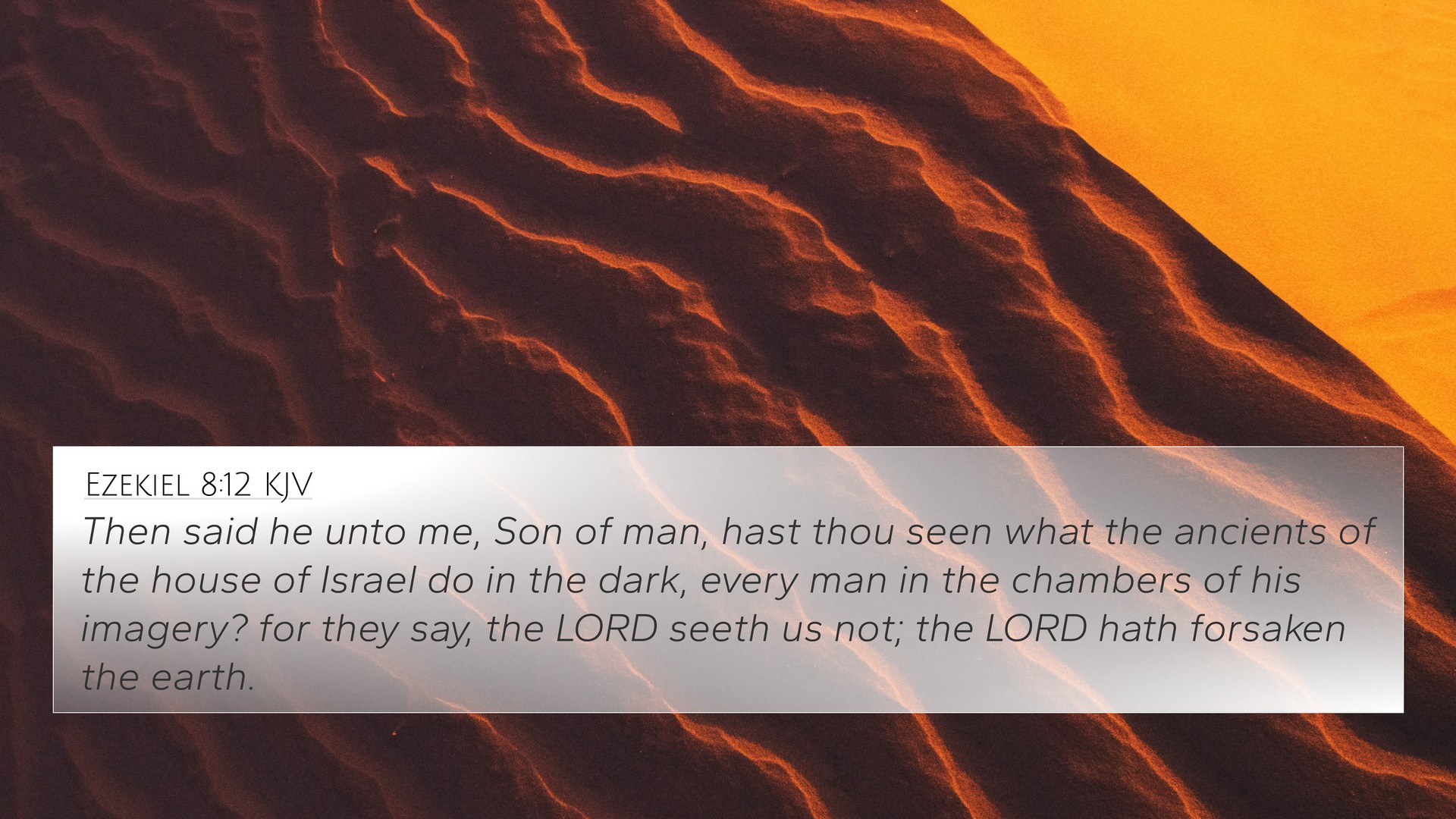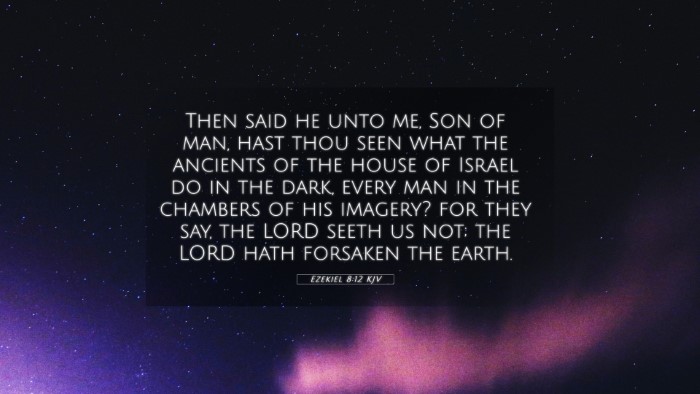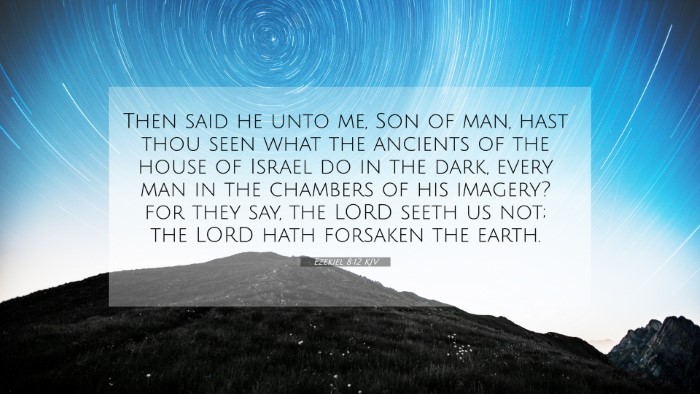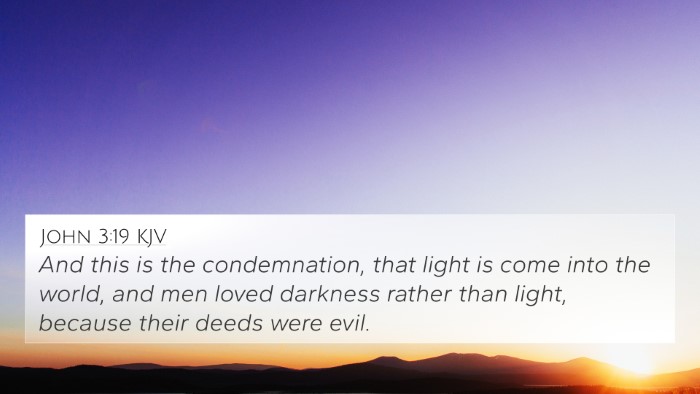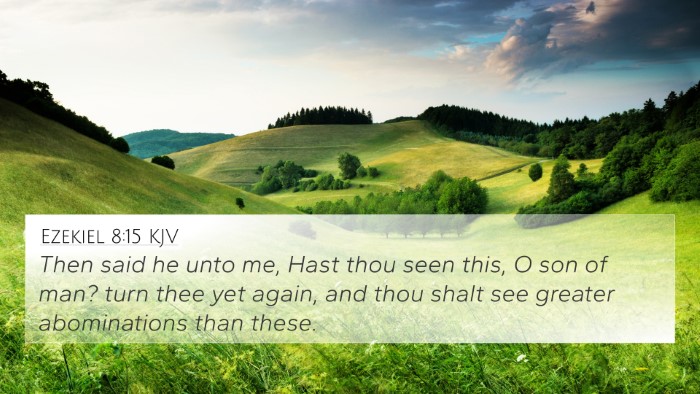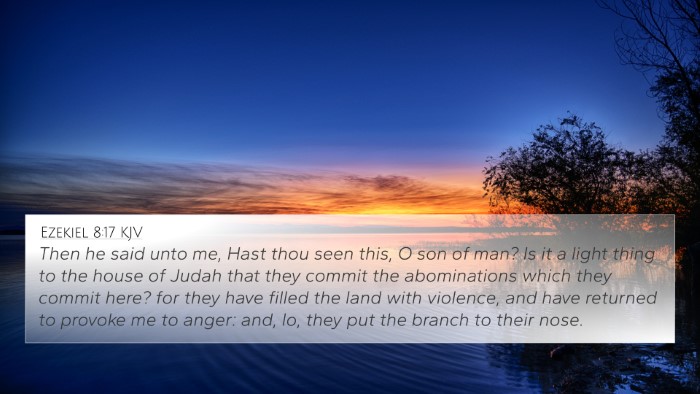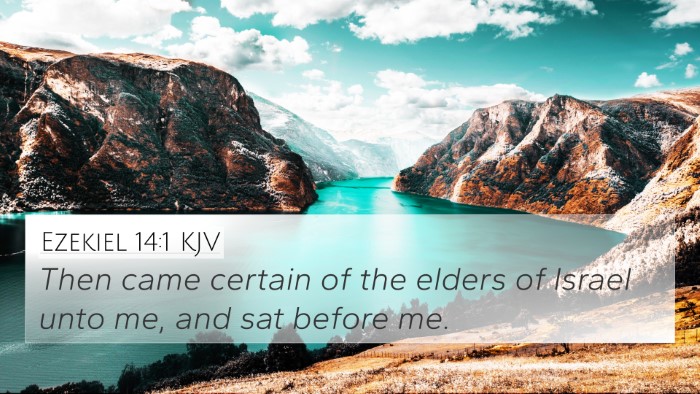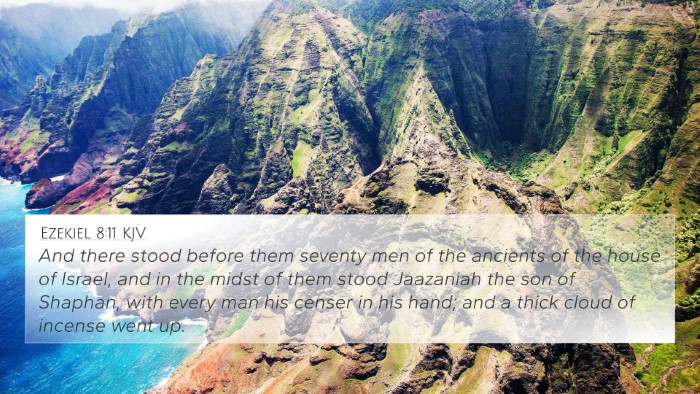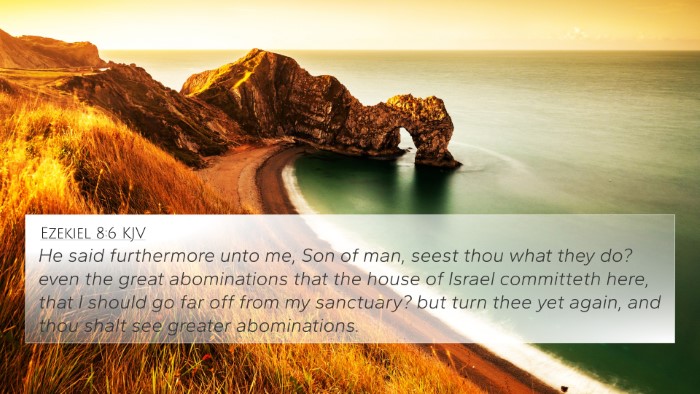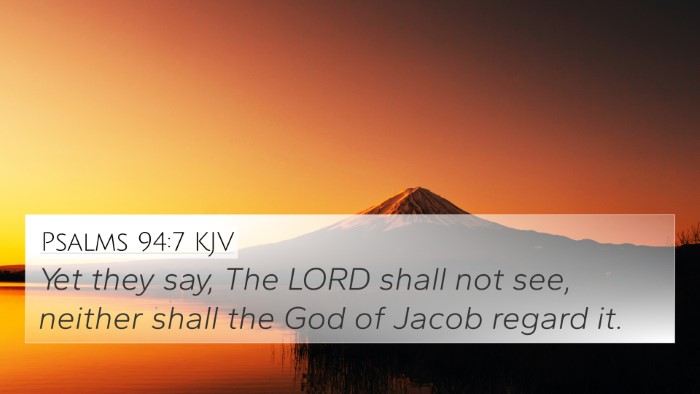Ezekiel 8:12 - Meaning and Interpretation
Ezekiel 8:12 captures a significant moment in the prophetic ministry of Ezekiel, illustrating the gravity of the transgressions of the people of Israel against God. In this verse, God reveals to Ezekiel the hidden abominations being committed by the leaders of Jerusalem, particularly that they are performing idolatrous acts in secret, believing their actions to be unseen.
Verse Context
This verse lies within a vision where God transports Ezekiel to Jerusalem to witness the sinful behaviors of the Israelites. This chapter is critical as it sets the stage for understanding the consequences of idolatry and moral decay within the chosen people.
Summary of Major Commentaries
-
Matthew Henry:
Henry emphasizes the shocking nature of the people's sins. He notes how the leaders are depicted as scoffing at God's laws, believing they can act with impunity. It illustrates a disregard for God that is both profound and widespread, highlighting the necessity for divine judgement.
-
Albert Barnes:
Barnes discusses the culpability of the Jewish leaders and the secrecy with which they pursue idolatry. Their actions symbolize a rebellion against God, suggesting a broader historical context where the nation continually turns away from true worship, leading to eventual destruction.
-
Adam Clarke:
Clarke elaborates on the mystery of human sin that desires to be concealed, often believing it can escape divine notice. He notes that this verse serves as a wake-up call to reflect on the reality that God sees all and that no action is hidden from Him.
Cross-References and Thematic Connections
Ezekiel 8:12 connects with several compelling Biblical themes, notably the issue of idolatry, divine judgment, and the nature of sin. Here are some related scriptures that provide deeper insight into the themes presented in this verse:
- Jeremiah 23:17: Highlights false prophets who declare peace while leading the people into sin.
- Isaiah 29:15: Speaks of the futility of attempting to hide things from God, underscoring their foolishness.
- Ezekiel 9:9: Continues the theme of the pervasive iniquities among the people of Israel and the impending judgment.
- 2 Kings 21:16: Chronicles the extensive evil committed in Jerusalem, showcasing historical connections to the present issues in Ezekiel's time.
- Psalm 44:20-21: Reflects on God’s knowledge of hearts and thoughts, tying to the idea that all acts are known to God.
- Romans 2:16: Discusses the judgment based on God’s standard, reinforcing that every hidden action will be brought to light.
- Acts 15:20: Suggests that there are moral laws expected to be adhered to by the people, contrasting with the sinful practices of Israel.
- Matthew 23:27: Jesus emphasizes the hypocrisy of the religious leaders who appear righteous outwardly but are corrupt inwardly.
- James 1:22: Encourages believers to be doers of the word, counteracting the concept of hidden abominations.
- 1 Thessalonians 5:22: Advises believers to abstain from all appearance of evil, reflecting the need for visible righteousness.
Understanding the Implications
The implications of Ezekiel 8:12 resonate profoundly in both historical and contemporary contexts. The reality of hidden sins among religious leaders raises critical questions about integrity, accountability, and the seriousness of spiritual decline. It serves as a reflection for modern believers to examine their lives, challenging the notion that one can harbor secret sins without accountability.
Conclusion
In closing, Ezekiel 8:12 is a powerful reminder of God's omniscience regarding human behavior. The intertwining themes of secrecy, judgment, and the reality of idolatry provoke deep reflection on personal faith and community practice. As believers explore the connections between this verse and others, they find a comprehensive framework for understanding the gravity of sin and the expectations of God toward His people.
